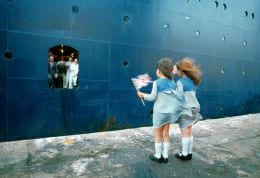14th Dec 2016 5:00pm-7:00pm
Grand Parade, G4
Dr Helen Parr (Keele University)
The 1982 Falklands war was an unexpected, short, but symbolic conflict, in which 255 British servicemen were killed. In public, at the time, its grief was expressed in terms redolent of World War Two, of patriotism, pride and emotional restraint.
This paper is based on interviews I have conducted, more than 30 years after the war, with families – widows, parents, siblings and children – of some of the soldiers who died. It suggests that the experience of grief was influenced to a great extent by social class but also by gender, generation, religious beliefs, and by individual and private relationships, particularly the interviewee’s sense of their position within their family, their relationship to the man killed, and by their attitudes towards his Army service. For some people, the expression of grief had to be public, because their sense of themselves depended upon particular roles related to the Army. For others, it was intensely private, and led to extreme behaviours, or to raw emotional vulnerability.
Over time, most people came to a version of their grief they could live with: for some, this meant fixing the past as an unyielding memory, but moving on with their lives; for others, the past was ever-present, and while grief did diminish in intensity, they were never free of the significance of their loss and the way it had forced change into their lives.
Helen Parr is Senior Lecturer in International Relations at Keele University. Her book, Our Boys: The Parachute Regiment, the Falklands War and 1980s Britain, will be published by Allen Lane/Penguin in 2018.


Leave a Reply